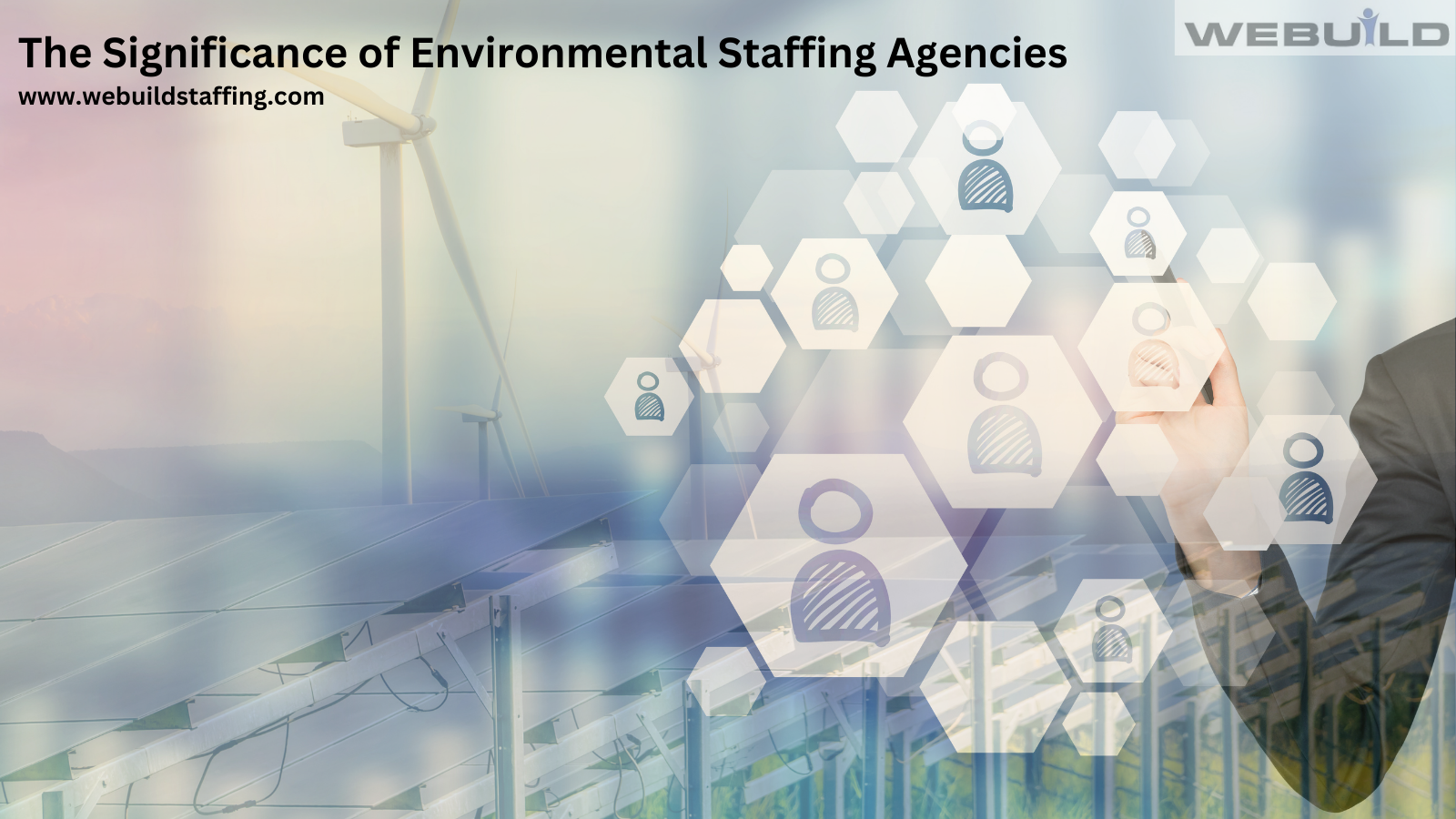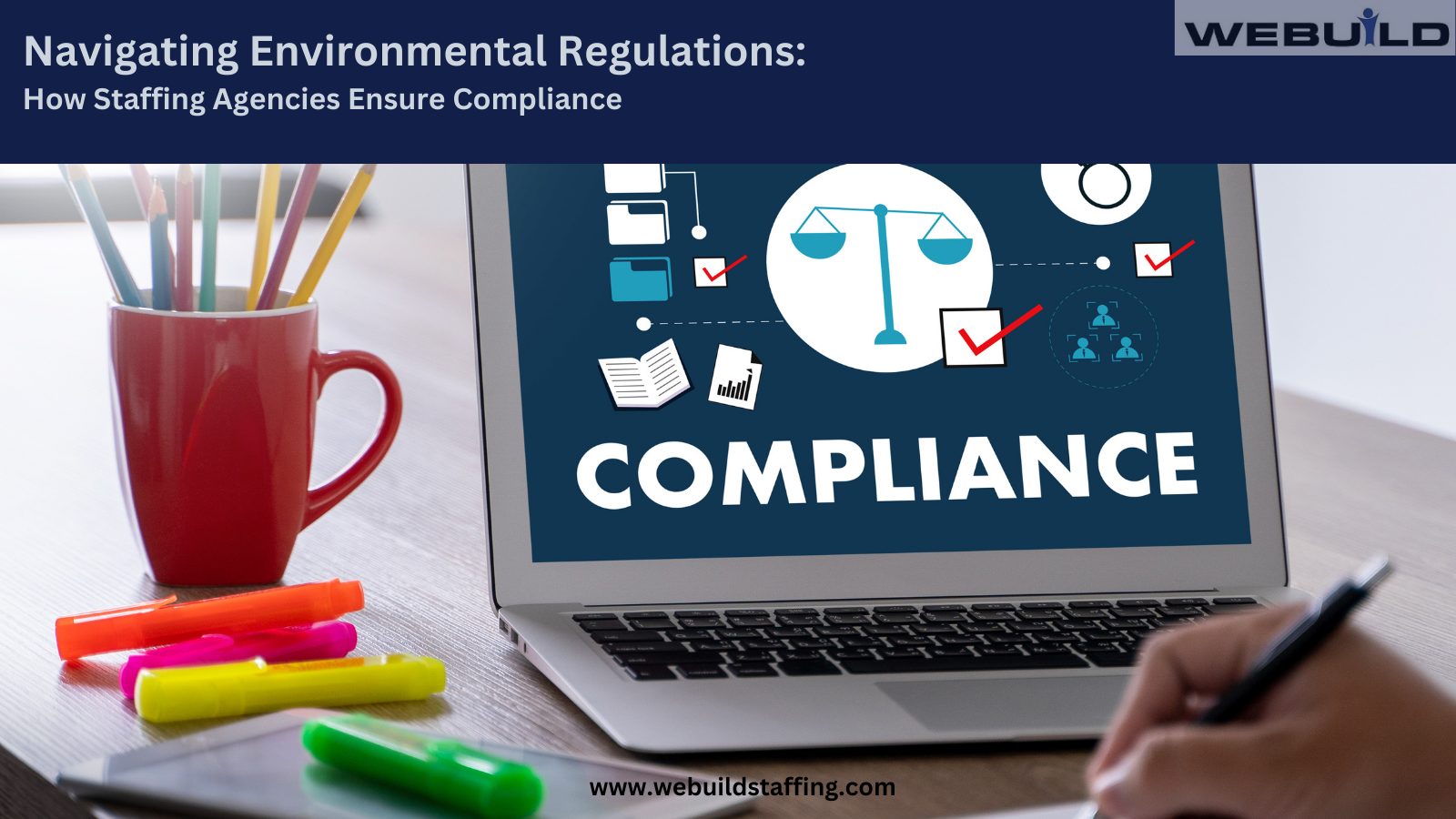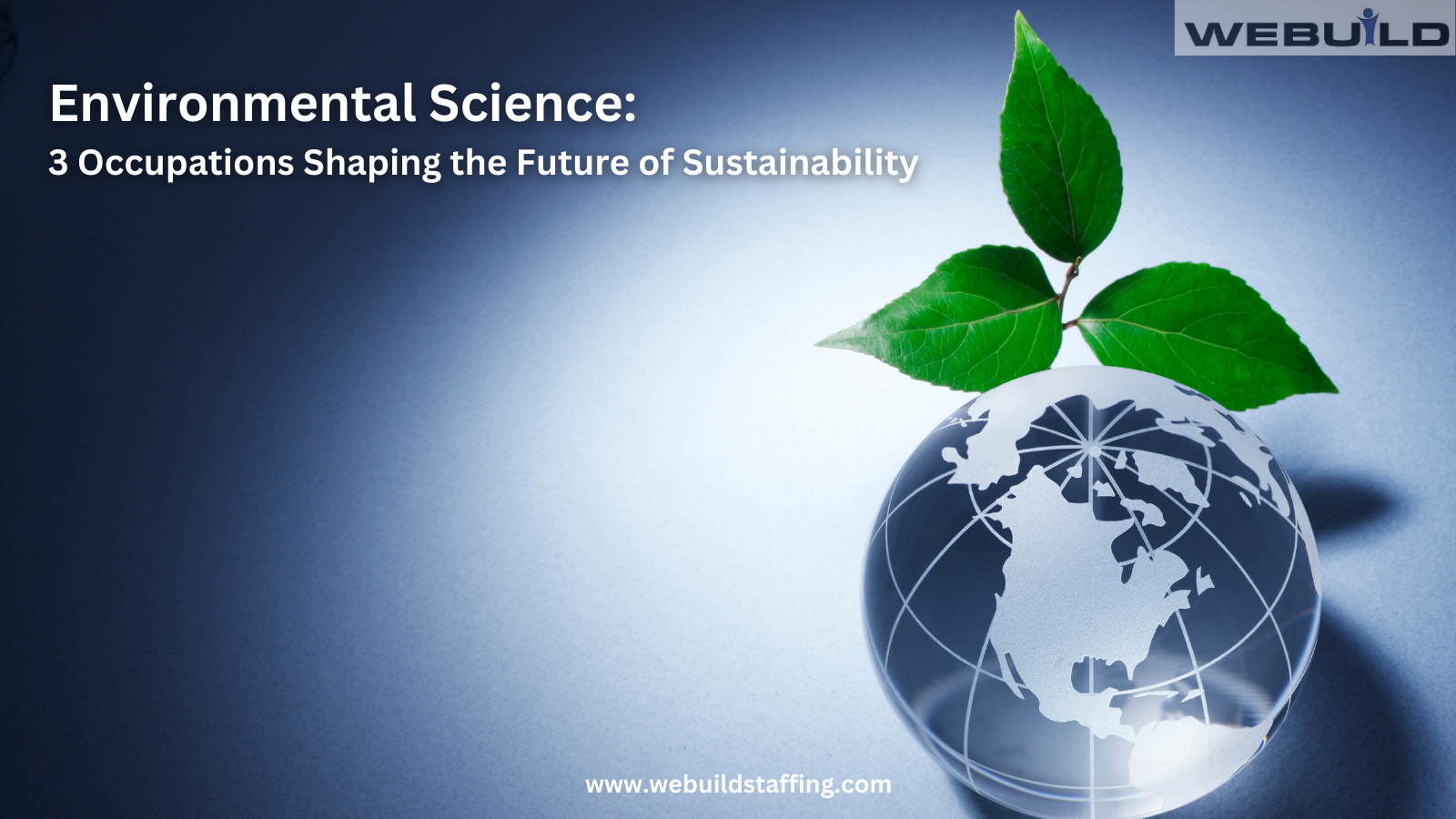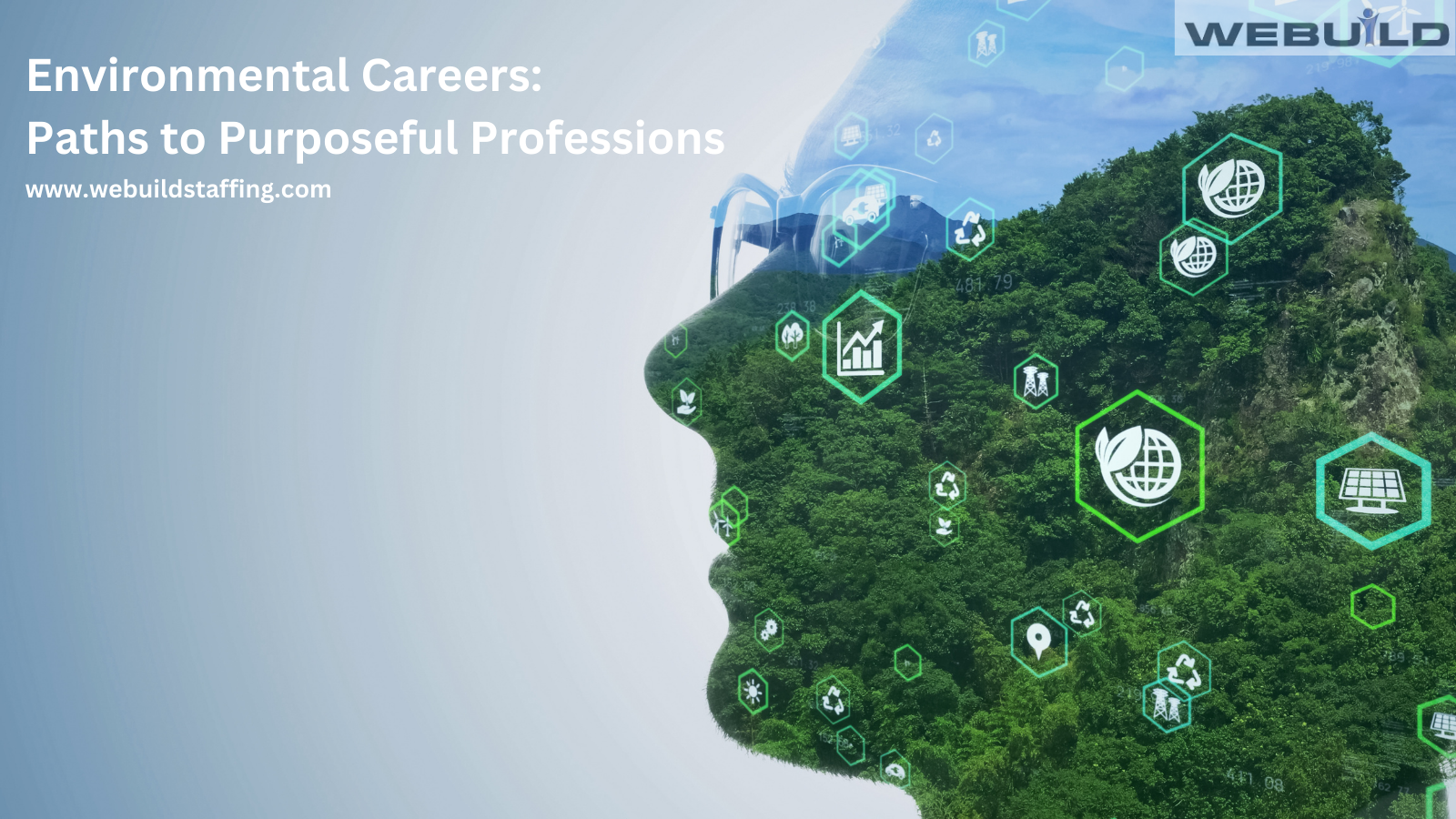Navigating Complexity: The Vital Role of Environmental Consultants in Solving Today’s Challenges
WEBUILD STAFFING BLOG |
Navigating Complexity: The Vital Role of Environmental Consultants in Solving Today’s Challenges

In an era marked by unprecedented environmental challenges, the role of environmental consultants has become increasingly vital. These professionals serve as stewards of our planet, leveraging their expertise to address complex issues ranging from pollution remediation to sustainable development. Lets delve into the multifaceted role of environmental consultants, exploring how they navigate intricate challenges to foster a healthier and more sustainable world.
Understanding Environmental Consulting: Environmental consulting is a dynamic field encompassing a diverse range of disciplines, including environmental science, engineering, policy, and law. Consultants work with various stakeholders, including government agencies, corporations, non-profit organizations, and communities, to assess, mitigate, and manage environmental risks.
Environmental Consultants Address the Complexities of Environmental Compliance:
Today’s environmental challenges are more complex and interconnected than ever before. From climate change and biodiversity loss to pollution and resource depletion, these issues require holistic and innovative solutions. Environmental consultants play a crucial role in deciphering this complexity and developing strategies to address it effectively.
-
Environmental Impact Assessment (EIA): One of the primary responsibilities of environmental consultants is conducting Environmental Impact Assessments (EIAs). EIAs evaluate the potential environmental consequences of proposed projects, such as infrastructure development, industrial facilities, or urban expansion. By identifying potential risks and recommending mitigation measures, consultants help decision-makers make informed choices that balance development with environmental protection.
-
Pollution Remediation and Management: Contamination of soil, water, and air poses significant threats to human health and ecosystems. Environmental consultants specialize in assessing and remediating polluted sites, whether caused by industrial accidents, improper waste disposal, or historical contamination. Through techniques such as site investigation, risk assessment, and remediation planning, consultants strive to restore environmental quality and safeguard public health.
-
Sustainable Development and Resource Management: Achieving sustainable development requires balancing economic growth with environmental conservation and social equity. Environmental consultants collaborate with businesses, governments, and communities to integrate sustainability principles into development projects and resource management practices. From renewable energy initiatives to green infrastructure planning, consultants advocate for solutions that minimize environmental impact while maximizing social and economic benefits.
-
Regulatory Compliance and Policy Advocacy: Navigating the complex landscape of environmental regulations and policies is a daunting task for many organizations. Environmental consultants provide invaluable support by ensuring compliance with local, national, and international environmental laws. Additionally, they advocate for policy changes and initiatives that promote environmental stewardship and address emerging challenges such as climate change adaptation and biodiversity conservation.
-
Stakeholder Engagement and Conflict Resolution: Environmental projects often involve multiple stakeholders with diverse interests and perspectives. Consultants excel in facilitating dialogue and collaboration among stakeholders to build consensus and resolve conflicts. By fostering meaningful engagement and incorporating stakeholders’ input into decision-making processes, consultants help create sustainable solutions that garner broader support and acceptance.
The Role of Technology and Innovation: Innovation and technology play a crucial role in enhancing the effectiveness and efficiency of environmental consulting practices. Advanced tools such as Geographic Information Systems (GIS), remote sensing, and predictive modeling enable consultants to collect, analyze, and visualize complex environmental data. Furthermore, emerging technologies such as artificial intelligence and blockchain offer new opportunities for improving environmental monitoring, compliance management, and sustainability reporting.
Challenges and Opportunities: Despite the significant contributions of environmental consultants, the field faces several challenges, including resource constraints, regulatory uncertainties, and evolving environmental risks. Moreover, the urgent need to address pressing issues such as climate change requires continuous adaptation and innovation within the consulting industry. However, these challenges also present opportunities for consultants to leverage their expertise and creativity to develop innovative solutions and drive positive change.
In conclusion, environmental consultants play a critical role in addressing today’s complex environmental challenges. Through their interdisciplinary expertise, practical experience, and commitment to sustainability, consultants contribute to building a more resilient and equitable world. As we strive to navigate the uncertainties of the future, the role of environmental consultants will remain indispensable in shaping a sustainable path forward for generations to come.
Webuild Staffing Agency is a leading executive search and staffing agency dedicated to the construction, engineering and environmental industries. To learn more please visit: www.webuildstaffing.com










